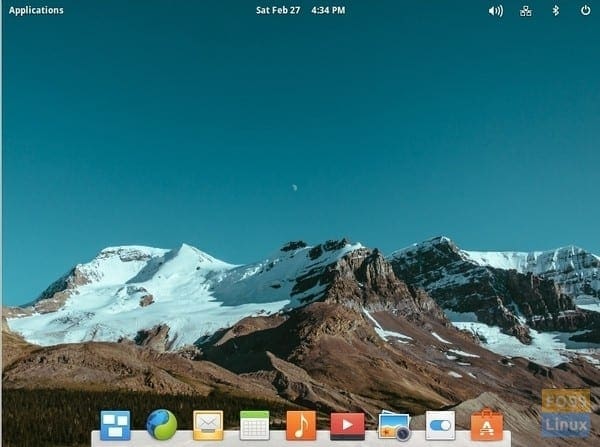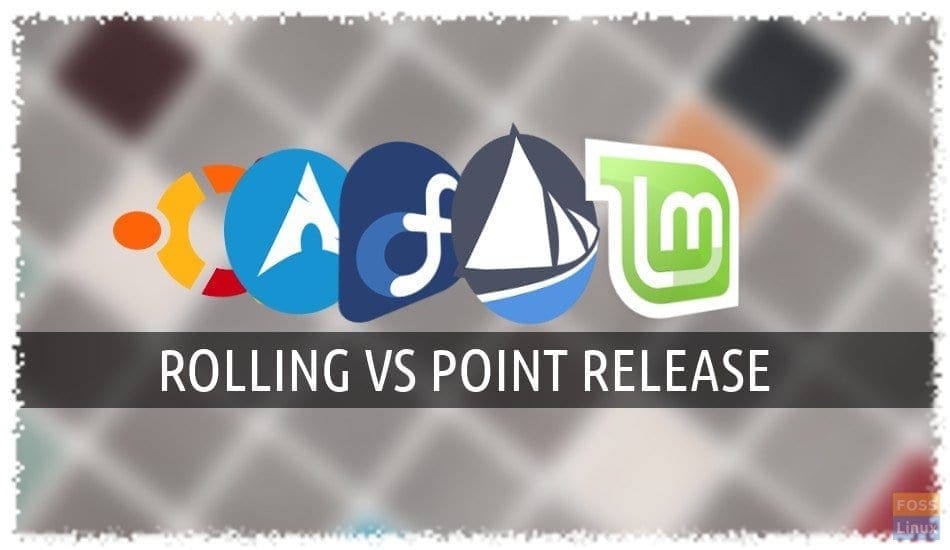Any software development can be classified into two broad models: the Standard Point release and the Rolling release. Linux distributions development also uses one of these models.
Let’s look into both these release cycles so that you can decide which one is for you. Both the development models have their Pros and Cons.
Standard Point Release Development
Standard point release has been there for a while and is mostly seen in most software development models. In this system, software versions are made that must be reinstalled over the previous version. A point release is typically referred to as a minor release of a software project, specially targeted for bug fixes and house cleaning.
A major release is issued for adding new significant features. For example, consider Android development. Android 7.0 is Nougat which is a substantial release from Android 6.0 Marshmallow. Android 7.1 Nougat is a minor point release, followed by Android 8.0 Oreo major release and Android 8.1 Oreo point release.

elementary OS desktop
It is imperative to know that there will be “End of Life” (EOL) for each version in this development model, after which the dev team will no longer release updates. No more updates imply open security holes and compatibility issues with the latest hardware. Several major Linux distributions follow this system, including Ubuntu, Linux Mint, elementary OS, Fedora, etc.
Rolling Release Development
In the Rolling release development model, updates are released continuously, and so there is no such thing as minor version release or significant release. The updates are released frequently (varies from distribution to distribution) across all operating systems, including the Linux kernel, the desktop environment, and all applications.
This implies the operating system is always up-to-date and doesn’t have an end of life as long as the distribution itself is maintained. Linux distributions often release a build ISO called a snapshot, an ISO image containing updates on that particular day. That is to make sure that users will not have to spend a lot of time downloading huge amounts of updates after installation.

Manjaro Desktop
Arch Linux, Solus, OpenSUSE, Manjaro, PCLinuxOS, Debian, Antergos, Gentoo are some of the popular rolling Linux distributions.
Rolling vs. Point release distros: Which distro is best for you?
So, which is the best Linux distribution model? The answer can’t be generalized to everyone. The difference between these two distribution models is the stability, convenience, hardware support, and new features.
If you have an older computer whose hardware is recognized and supported by the distribution you want to use, then point release is for you. That way, you can make sure that your PC will never land in trouble due to hardware compatibility later on.
I can’t stress it enough; a Rolling release comes with significant updates, including Linux Kernel and hardware drivers pushed via daily updates. On an old computer, this may be too much. Not just old PCs, some new PCs also may do wonderfully good on a distro but can’t handle another distro effectively. That’s when you need to stick to Point release as well. One more reason to stay with Point release distro is to preserve the customization, look & feel, and themes you applied. You don’t wish to see it changing again and again.
On the other hand, Rolling distribution is the way to go if you have a modern PC and don’t mind changes to look & feel. The most significant advantage of Rolling distribution is you always get the latest technologies faster than the point release model.
Final Thoughts
In a nutshell, Rolling distro is for the latest and greatest updates, while fixed release distro is for a stable and reliable system.


4 comments
I use KaOS since 4 years and it is more stable as any other OS that I used before, including the Ubuntu LTS spins.
Debian does not seen to have any rolling release models currently available.
One should specify that OpenSuse TUMBLEWEED is rolling whereas the “normal” OpenSuse branch is Standard Point. Likewise Debian stable is Standard Point whereas Debian unstable can somewhat considered a rolling release albeit it not really is.
I think you have overlooked the principle disadvantage of a rolling release system: security. Rolling release updates are automatically downloaded and applied daily. For example, Kali (a Debian based distro) will look for updates as soon as you turn it on and at randomized intervals after that.
If you wish to monitor your system for potential intruders, your best approach is to checksum every important system file (for example, using tripwire). If someone has penetrated your system and left a back door, it will show up as a file change somewhere. If the computer’s update system is changing files behind your back, your intrusion protection system will ring the fire bell every time the update runs!
With point release systems (like ubuntu) you can still set up a daily event to run a script to check for updates. But, that script can also include a checksum verification on your system files before the update and calculate new check-sums after. If you wish, your script can also check for major release upgrades. At which point, it’s basically a rolling release with a security check…
The bottom line is that the rolling release distros reduce flexibility and provide an easy way for intruders to mask their fingerprints!